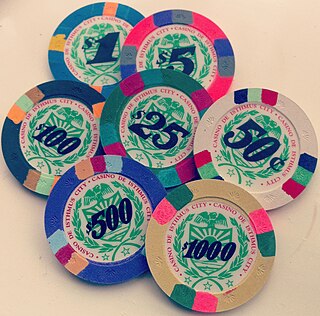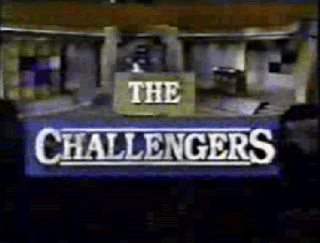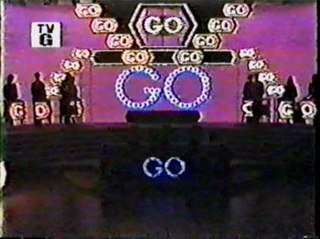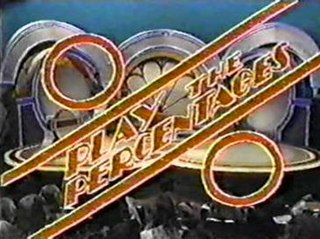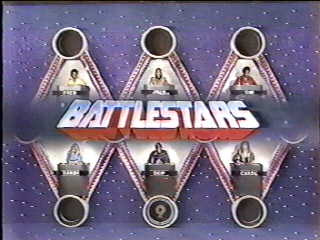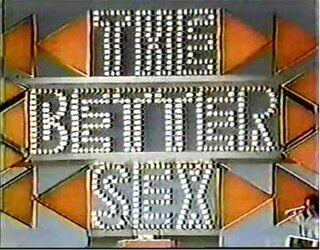| Duel | |
|---|---|
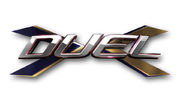 | |
| Genre | Quiz show |
| Developed by | BermanBraun Rocket Science Laboratories French TV |
| Directed by | Mark Gentille |
| Presented by | Mike Greenberg |
| Composer(s) | David Vanacore |
| Country of origin | United States |
| No. of seasons | 2 |
| No. of episodes | 16 |
| Production | |
| Executive producer(s) | Gail Berman Lloyd Braun |
| Running time | ≈61 minutes (Dec. 17-18) ≈44 minutes (All other episodes) |
| Distributor | French TV |
| Release | |
| Original network | ABC |
| Picture format | NTSC (480i) |
| Original release | December 17, 2007 – July 25, 2008 |
| Chronology | |
| Related shows | Duel (UK version) |
| External links | |
| Website | |
Duel is an American game show hosted by Mike Greenberg that first aired from December 17 to December 23, 2007 on ABC. [1] [2] [3] [4] [5] [6] [7] [8] The show aired as a week-long six-episode tournament at 8:00 PM (7:00 Central) from Monday through Friday with the finale on Sunday.

The United States of America (USA), commonly known as the United States or America, is a country composed of 50 states, a federal district, five major self-governing territories, and various possessions. At 3.8 million square miles, the United States is the world's third or fourth largest country by total area and is slightly smaller than the entire continent of Europe's 3.9 million square miles. With a population of over 327 million people, the U.S. is the third most populous country. The capital is Washington, D.C., and the largest city by population is New York City. Forty-eight states and the capital's federal district are contiguous in North America between Canada and Mexico. The State of Alaska is in the northwest corner of North America, bordered by Canada to the east and across the Bering Strait from Russia to the west. The State of Hawaii is an archipelago in the mid-Pacific Ocean. The U.S. territories are scattered about the Pacific Ocean and the Caribbean Sea, stretching across nine official time zones. The extremely diverse geography, climate, and wildlife of the United States make it one of the world's 17 megadiverse countries.

Michael DarrowGreenberg is a television anchor, television show host, former radio show host for ESPN and ABC, and novelist. At ESPN, he hosted the weekday evening, most often Monday, SportsCenter and previously ESPN Radio's Mike & Mike show with Mike Golic. At sister network ABC, he was the host of Duel, which aired from 2007 to 2008. He also co-hosts Battle of the Network Stars with Joe Tessitore.

The American Broadcasting Company (ABC) is an American commercial broadcast television network that is a flagship property of Walt Disney Television, a subsidiary of the Disney Media Networks division of The Walt Disney Company. The network is headquartered in Burbank, California on Riverside Drive, directly across the street from Walt Disney Studios and adjacent to the Roy E. Disney Animation Building.
Contents
- Gameplay
- Season 1
- Season 2
- Broadcast history
- Nielsen ratings
- Other versions
- Hungarian version
- French version
- References
- External links
The show's website described the program as a cross between Who Wants to Be a Millionaire? and the World Series of Poker . The game was played in a head-to-head format in which contestants answered general trivia questions, with wrong answers contributing to a growing jackpot. The winner of the Duel jackpot of $1,720,000 was Ashlee Register, whose grand total was nearly $1.8 million when combined with previous winnings, making her the highest-winning female game show contestant in the U.S.

Who Wants to Be a Millionaire? is an international television game show franchise of British origin, created by David Briggs, Mike Whitehill and Steven Knight. In its format, currently owned and licensed by Sony Pictures Television, contestants tackle a series of multiple-choice questions to win large cash prizes, with the format being a twist on the game show genre – only one contestant plays at a time, similar to radio quizzes; contestants are given the question before attempting an answer, and have no time limit to answer questions; and the amount offered increases as they tackle questions that become increasingly difficult. The maximum cash prize offered in most versions of the format is one million of the local currency.

The World Series of Poker (WSOP) is a series of poker tournaments held annually in Las Vegas and, since 2005, sponsored by Caesars Entertainment Corporation. It dates its origins to 1970, when Benny Binion invited seven of the best-known poker players to the Horseshoe Casino for a single tournament, with a set start and stop time, and a winner determined by a secret ballot of the seven players.
The second season aired in a weekly format with modified rules from April 4 to July 25, 2008 at 9:00 PM (8:00 Central). [9]
Both seasons were sponsored by Diet Pepsi Max [10] led by Russell Findlay, the Pepsi marketing executive who launched Pepsi Max in the USA.

Pepsi Max is a low-calorie, sugar-free cola, marketed by PepsiCo as an alternative to their drinks Pepsi and Diet Pepsi. It is sold primarily in European and Asian markets.
J. Russell Findlay is an American businessman, philanthropist and an advertising and marketing executive. He is currently the Chief Marketing Officer at Hiscox, an international specialist insurer as well as a small business owner and a Managing Director of a non-profit organization.
